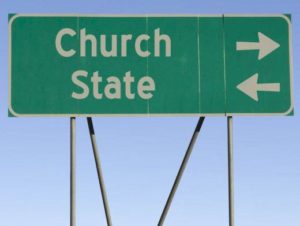I cannot let this one pass without offering a brief rejoinder.
Dave Henry, the director of commentary for the Amarillo Globe-News, offered this tidbit in a column Sunday about what is written in the U.S. Constitution.
His column dealt with myths and other untruths that show up on social media. He writes: The fake “City of Amarillo” Facebook page reminded AGN that, “The free press is a cornerstone of democracy.”
Is the free press a “cornerstone” of a republic? I hope so, because the word “democracy” is nowhere to be found in the U.S. Constitution or the Declaration of Independence. Unfortunately, what is actually written in the U.S. Constitution – and what is not – does not matter anymore. For example, “separation of church and state.”
He quibbles correctly about whether the founders created a “democracy” or a “republic.” It was the latter, for certain.
But then …
Henry repeats a canard that needs some further explanation. He says the Constitution does not contain the words “separation of church and state.” True. But only as far as it goes.
What that remark — cited often by conservatives who keep arguing that it’s OK to teach religion in public schools — ignores is that the Constitution implies such a separation in its First Amendment. The founders didn’t need to write “separation of church and state” when they declared that Congress shall make no law that establishes a state religion. The prohibition against writing such a law translates quite nicely, in my humble view, to a church-and-state separation.
What’s more, the federal courts have upheld that standard repeatedly through countless court challenges over the course of, oh, 200 years.
I just have grown weary of the tired refrain that the Constitution needs to say something specifically in order to make an issue relevant. Church/state separation is covered by the nation’s governing document — even if it doesn’t say it in so many words.
